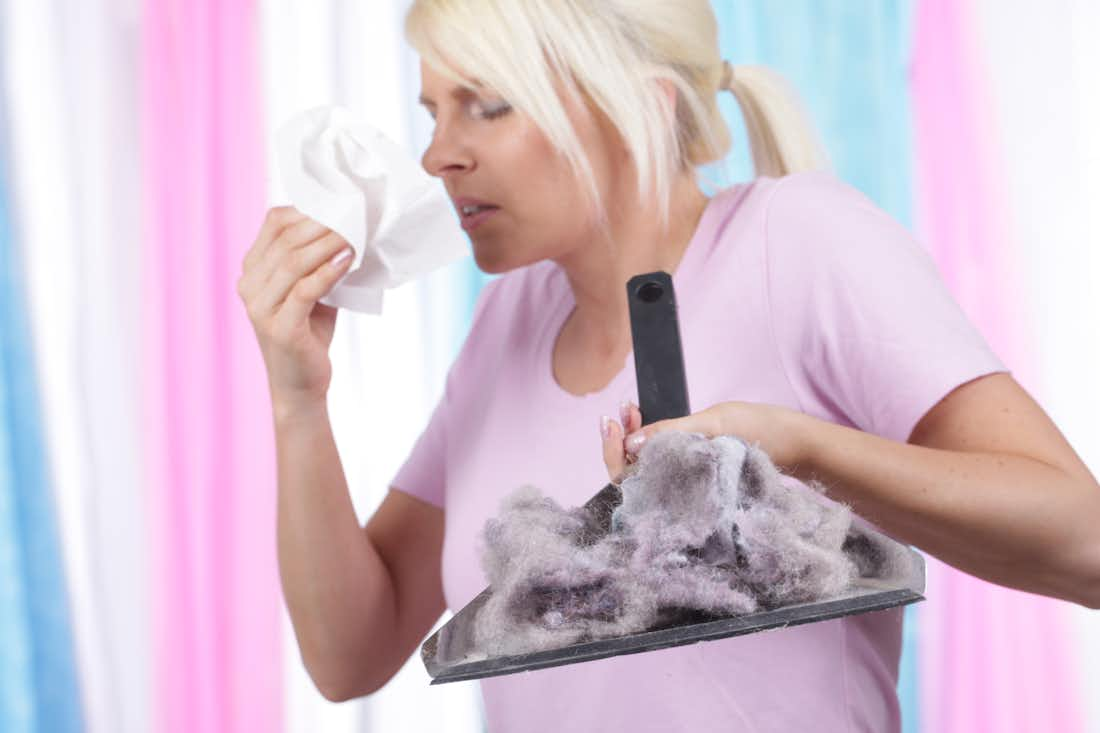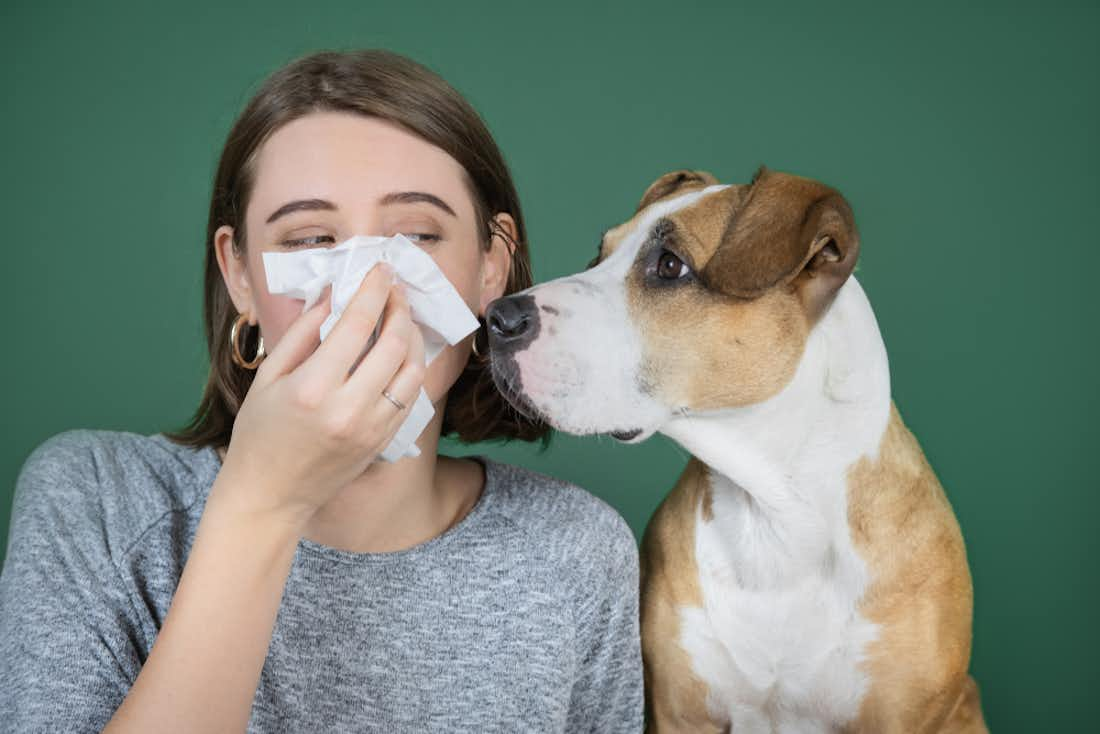Jan 19, 2022
Why Are So Many People Allergic To Peanuts?
5 minute read
For some of us, it’s impossible to imagine a day without some peanut butter-covered toast or Reese’s cup. But for others, it’s impossible to imagine a day with those foods. Peanut allergies affect nearly 2.5 percent of children in the United States, and a 2017 study reported a 27 percent increase in the prevalence of peanut allergies since 2010.
But why do so many people have this pesky peanut aversion? After all, it’s just peanuts… so how are they so harmful to some people’s health? Here’s everything you need to know about why peanut allergies are among one of the most common types of food allergies in the world.
What Causes Peanut Allergies?
An allergic reaction occurs when the immune system perceives a harmless substance as a threat. It’s why you might sneeze at the thought of pollen or sniffle at the whiff of mold spores.
When a person has a peanut allergy, proteins in the peanut bind to something called specific IgE antibodies. These are antibodies produced by the immune system that travel to cells and release chemicals that cause an allergic reaction.
Exposure to peanuts through munching on a PB&J, for instance, triggers a person’s immune defenses.
When you are allergic to peanuts your immune system can trigger a reaction called anaphylaxis. Anaphylaxis is a potentially life-threatening allergic reaction to peanut that involves an intense drop in blood pressure and constriction of the airways.
Always check the food products you buy and make sure they do not contain peanuts or any nuts in the ingredients if you are allergic.
Why Are Peanut Allergies So Common?
Food allergies, in general, are very common, and you probably know someone allergic to cashews, walnuts, pistachios, hazelnuts, pecans, or almonds. Here’s the thing -- researchers don’t exactly know why that is.
However, some theories suggest that since we are consuming many more peanuts and legumes now than our ancestors ever did, we may be priming future generations for a nut allergy. Alternatively, it might just be that since more people are eating peanuts, it just appears that more individuals actually have a true peanut allergy.
Finally, since allergies are genetic, it may just be that more parents are transmitting their allergies to their children after birth. The bottom line is that no one really knows for sure, and if we had a clearer answer, we might be able to stop peanut allergies in their tracks. The good news is that there are still ways to alleviate allergies, even to peanuts!
Can You Treat Peanut Allergies?
You won’t be able to use antihistamines to treat peanut allergies. But if you have allergic reactions to peanuts (which are technically legumes like soybeans, peas, and lentils!), there’s actually some light at the end of the sneezy and wheezy tunnel. That’s because peanut allergies are the only food allergies with an FDA-approved treatment.
In 2020, a treatment called Palforzia was approved to mitigate allergic reactions, including anaphylactic shock, and it can be administered to children ages four through 17 with peanut allergies. It consists of three phases that consist of increasing dosage over time.
Essentially, it’s a form of allergy immunotherapy that gradually exposes the body’s immune system to the allergen over time. After a while, the body adapts and can shield itself against foreign threats. You can think of it as running .1 miles farther every single day until you’re able to run a whole marathon.
Can You Outgrow Peanut Allergies?
Children can often outgrow certain food allergies, particularly milk and egg. In fact, the Mayo Clinic estimates that 60 to 80 percent of children will no longer have milk or egg allergies by the time they turn 16.
Unfortunately, the outlook is a bit less optimistic regarding peanut allergies. It’s believed that only 20 percent of children will outgrow peanut allergies. So how do you find out if you’re a part of the lucky one-fifth that no longer needs to worry about shoveling handfuls of peanut m&ms into their mouth?
Definitely not by trying the foods that you might still be allergic to. If you are worried you or your child has food allergies, testing can be done with a skin prick test or a blood test.
How To Manage Peanut Allergies
If you’ve got a food allergy, avoiding it is as simple as not ingesting the problematic foods. But sometimes, that can be easier said than done.
One benefit of having a peanut allergy instead of other food allergies is that it is one of the eight allergens with labeling requirements under the Food Allergen Labeling and Consumer Protection Act of 2004. This means that any products you buy in stores that contain peanuts or have been manufactured in a facility containing peanuts must be labeled accordingly.
But to err on the side of caution, you should be very careful about what you eat. Ask restaurant staff about ingredients, especially in desserts, and let them know ahead of time that you have an allergy so they can make sure the chef works to keep your food separate.
Even though you might not be able to enjoy a proper PB&J, you may still be able to enjoy other nut butter and tree nuts. While you should talk to your allergist beforehand, you may easily be able to use hazelnut spreads, almond butter spreads, or other alternatives so that you can enjoy delicious foods instead of peanuts.
A Tough Nut to Crack
Peanut allergies are among the most common in the world. And while it’s not entirely understood why that is, allergies are genetic and this may predispose some to having a peanut allergy, or it might just be that we are eating more peanuts! If allergies are getting the best of you, Cleared can help you get a personalized treatment plan that works for you. Take your free allergy consultation today.
Sources: Peanut Allergy | Causes, Symptoms & Treatment | ACAAI Public Website Immunoglobulin E (IgE) Defined | AAAAI Anaphylaxis - Symptoms and causes | The Mayo Clinic Likelihood of Child Outgrowing Food Allergy Depends of Type, Severity of Allergy | The Mayo Clinic



